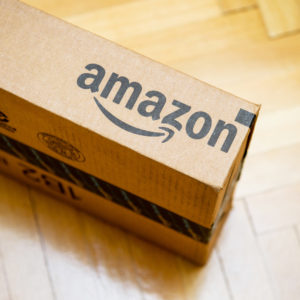In one generation, Amazon has gone from a small online bookseller to the second most valuable company in the world, trailing only Apple. More amazing still is that Amazon has managed to unite Donald Trump and Bernie Sanders. Politics may make for odd bedfellows, but Amazon has taken it to the next level.
Candidate Trump was first to the Amazon hatred party, saying of CEO Jeff Bezos, “He thinks I’ll go after him for antitrust. Because he’s got a huge antitrust problem … ” That Bezos owns the Washington Post might have had something to do with Candidate Trump’s animosity. But, as president, his animosity hasn’t waned.
Where President Trump is aggravated, one would expect to find Senator Bernie Sanders satisfied. Not so with Amazon. Sanders is at least as hostile toward the online behemoth as Trump, though his irritation manifests for decidedly different reasons. Sanders has staked out a position on Amazon’s employee compensation, recently introducing the Stop BEZOS Act, just in case there was any doubt regarding his aims. What annoys Sanders is that some Amazon employees qualify for welfare. Said Sanders, “We do not believe that taxpayers should have to expend huge sums of money subsidizing profitable corporations …” His answer? Force Amazon to pay its employees more.
But the hostility flowing from both sides of the American political divide hides something important: Americans love Amazon. There is a reason, after all, that it has become the second most valuable company in the world. And therein lies the rub.
Trump, Sanders, Amazon and consumers are all acting in response to different incentives. Amazon wants to make a profit for its shareholders. It does this by offering services that consumers want at prices they are willing to pay. Trump wants to curry favor with those who can help keep him in power. To the extent that the Washington Post makes that difficult for him, he’s happy to take out his displeasure on Bezos by making Amazonian life difficult. Sanders wants to grow his own political base and believes that attacking Amazon will raise his bona fides in the eyes of the working class. Consumers, for their part, want the convenience of products delivered to their door at low prices, not to mention video on demand content.
While Trump’s and Sanders’ interests conflict with Amazon’s, Amazon’s interests and consumers’ interests fit hand-in-glove. The evidence? Consumers voluntarily handed over to Amazon nearly $178 billion of their money in 2017, and will almost certainly hand over even more in 2018.
While it’s true that not everyone loves Amazon, people are always free to shop elsewhere. And many do. Workers who aren’t satisfied with Amazon’s wages are free to offer their labor elsewhere. And many do. In a free market, everyone is free to offer to do business with whomever they want. In the end, this is what sets Trump and Sanders apart from Amazon and the rest of us.
We can’t walk away from politicians. If politicians decide that Amazon is “too big,” then they will prohibit it from growing larger. If politicians decide that Amazon must pay its workers more, then they will require that it do so. Defenders will say that politicians merely convey the will of the people. But these defenders never answer the obvious question: Didn’t the market already convey the will of the people?

